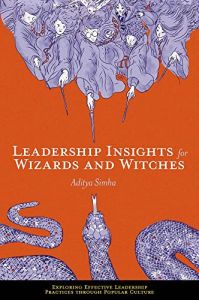加入 getAbstract 阅读摘要

加入 getAbstract 阅读摘要
Aditya Simha
Leadership Insights for Wizards and Witches
Exploring Effective Leadership Practices Through Popular Culture
Emerald Publishing Limited, 2022
看看什么内容?
To understand different types of leaders, try a little magic based on the traits of Harry Potter characters.
Recommendation
Professor Aditya Simha found that drawing leadership lessons from pop culture is an effective teaching technique. A lifelong reader of J.K. Rowling’s Harry Potter books, Simha turned to them for examples of different types of leaders.Discussing personality tests and varied leadership modes, he defines leadership types such as ethical, servant and transactional, and matches each one with a Hogwarts counterpart. Dumbledore, Harry and even Voldemort appear in Simha’s categorizations. He can be pedantic – useful only if you need research references on leadership types – but he also provides fun as he conjures up the wizarding world’s denizens as boardroom types and makes it clear that it’s still not good to be a muggle.
Summary
About the Author
As an associate professor of management at the University of Wisconsin, Aditya Simha concentrates on business ethics, healthcare ethics and organizational behavior.

















Comment on this summary